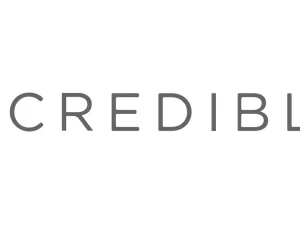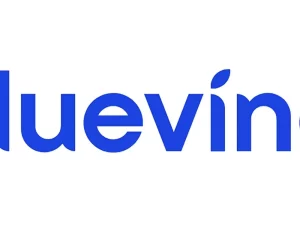The Student Loans Company (SLC) is a government-owned organization in the United Kingdom that plays a crucial role in administering student loans for higher education. With a primary focus on providing financial support to students, the SLC offers various types of loans, manages the loan repayment process, and offers support services to borrowers. In this comprehensive article, we will explore the functions, services, processes, and important aspects of the Student Loans Company in detail.
1. Introduction to the Student Loans Company (SLC):
The Student Loans Company was established in 1989 as a non-profit organization to provide financial assistance to students pursuing higher education in the UK. It acts as the primary channel through which students access loans and grants to cover tuition fees, maintenance costs, and other educational expenses. The SLC operates under the guidance of the UK government’s Department for Education (DfE) and works in collaboration with educational institutions, loan servicers, and other stakeholders in the student finance sector.
2. Types of Loans Offered by the SLC:
The Student Loans Company offers several types of loans to support students throughout their educational journey. These loans are designed to meet the diverse financial needs of students and are available to eligible undergraduate and postgraduate students. Here are the main types of loans provided by the SLC:
a) Tuition Fee Loans: These loans cover the cost of tuition fees charged by universities and colleges. The SLC disburses the loan amount directly to the educational institution on behalf of the student.
b) Maintenance Loans: Maintenance loans are intended to assist students with their living expenses, including accommodation, food, transportation, and study materials. The amount of the maintenance loan available to a student depends on various factors such as household income, location of study, and whether the student is living at home or away from home.
c) Postgraduate Loans: The SLC offers loans specifically tailored for postgraduate students pursuing master’s degrees or doctoral programs. These loans can help cover both tuition fees and living costs during postgraduate studies.
d) Disabled Students’ Allowance: The SLC provides the Disabled Students’ Allowance (DSA) to eligible students with disabilities or specific learning difficulties. The DSA helps cover the additional costs associated with their education, such as specialized equipment, personal assistance, or non-medical support. It’s important to note that the availability and terms of these loans may be subject to change based on government policies and regulations. Students should refer to the official SLC website or consult with their educational institution for the most up-to-date information.
3. Loan Repayment Process:
The Student Loans Company manages the repayment process for student loans, ensuring a fair and manageable approach that considers borrowers’ income and financial circumstances. Here are the key aspects of the loan repayment process:
a) Income-Contingent Repayment: In the UK, student loans are repaid through an income-contingent repayment (ICR) plan. This means that loan repayments are based on the borrower’s income rather than the loan amount. Repayments are deducted automatically from the borrower’s salary through the tax system once their income exceeds a specific threshold.
b) Repayment Thresholds: The repayment threshold is the annual income level at which borrowers become liable to start repaying their loans. The specific threshold is subject to change and is typically linked to the national average wage. It’s important for borrowers to stay informed about the current repayment threshold to understand when they will begin making repayments.
c) Repayment Rates: The percentage of income that borrowers are required to repay depends on their income level. Currently, the repayment rate is 9% of income above the repayment threshold. This ensures that borrowers’ loan repayments are affordable and proportionate to their earnings.
d) Interest Rates: Student loans provided by the SLC have interest rates set by the government. The interest rates are subject to change and are usually tied to the Retail Price Index (RPI) or the Consumer Price Index (CPI), plus a fixed percentage. The interest rates applied to student loans vary depending on the borrower’s income and repayment status.
e) Loan Forgiveness and Write-Off: In some cases, student loans may be eligible for forgiveness or write-off. The SLC operates specific schemes that allow for the cancellation or forgiveness of loans under certain circumstances. For example, if a borrower has not fully repaid their loan after a specific period (usually 30 years), the remaining balance may be written off. Additionally, borrowers who experience long-term illness, disability, or other exceptional circumstances may be eligible for loan forgiveness.
4. Application Process:
To access student loans through the Student Loans Company, students must go through a straightforward application process. While the specific application procedures may vary depending on the student’s circumstances, the general steps involved are as follows:
a) Application Form: Students need to complete an application form provided by the SLC. This form requires personal and financial information, including details such as name, address, household income, and course details.
b) Course and Institution Confirmation: The SLC verifies the student’s chosen course and educational institution to ensure eligibility for the loans. This step involves cross-referencing the details provided in the application form with the relevant educational institution.
c) Financial Assessment: The SLC conducts a financial assessment based on the information provided in the application form. This assessment helps determine the student’s eligibility for financial support and the specific loan amounts they qualify for.
d) Loan Offer: Once the application and financial assessment are complete, the SLC sends the student a loan offer letter. This letter outlines the approved loan amount and any additional grants or allowances the student may be eligible for.
e) Loan Acceptance: Students need to review and accept the loan offer by following the instructions provided by the SLC. Accepting the loan offer triggers the disbursement of funds, which are typically paid directly to the student’s bank account or educational institution.
5. Customer Support and Services:
The Student Loans Company provides comprehensive customer support and services to borrowers throughout the loan repayment process. Here are some of the key support services offered:
a) Online Account Management: Borrowers can create an online account on the SLC website to manage their student loans. Through this account, borrowers can access their loan details, view repayment information, update personal information, and track their loan balance.
b) Customer Service Helpline: The SLC operates a dedicated customer service helpline that borrowers can contact for assistance with inquiries, loan-related information, and guidance on the loan repayment process. The helpline is staffed with knowledgeable representatives who can provide support and address any concerns or issues raised by borrowers.
c) Repayment Support: Borrowers experiencing financial difficulties or hardship can contact the SLC to discuss alternative repayment arrangements. Depending on the circumstances, borrowers may be eligible for repayment plan adjustments, deferment, forbearance, or other forms of support.
d) Repayment Calculators and Tools: The SLC provides online tools and calculators on its website to help borrowers estimate their loan repayments. These tools allow borrowers to explore different repayment scenarios, understand the impact of income changes, and plan their finances effectively.
e) Communication and Updates: The SLC regularly communicates with borrowers to provide updates on loan repayment, changes in terms and conditions, and other relevant information. Borrowers should ensure their contact information is up-to-date to receive important notifications from the SLC.
Conclusion:
The Student Loans Company serves as a critical entity in the UK’s education financing landscape. By offering various types of loans, managing the loan repayment process, and providing support services, the SLC plays a vital role in enabling students to pursue higher education without undue financial burden. Through its streamlined application process, income-contingent repayment plans, and customer-focused approach, the SLC strives to make student loans accessible, affordable, and manageable for borrowers. Students and borrowers should consult the official SLC website and resources for the most up-to-date and accurate information regarding student loans and related services.










